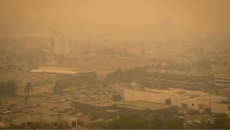The federal Liberal government has reached a deal with Google over the Online News Act, following threats from the digital giant that it would remove news from its search platform in Canada.
A government official confirmed that news to The Canadian Press under condition of anonymity, because they were not authorized to speak publicly about the deal.
CBC News is reporting, citing an unnamed source, that the agreement would see Canadian news continue to be shared on Google's platforms in return for the company making annual payments to news companies in the range of $100 million.
A formula in the government's draft regulations for the bill would have seen Google contributing up to $172 million to news organizations — but Google had said it was expecting a figure closer to $100 million based on a previous estimate.
The legislation, which comes into effect at the end of the year, requires tech giants to enter into agreements with news publishers to pay them for news content that appears on their sites, if it helps the tech giants generate money.
Google had warned that it would block news from its search engine in Canada over the legislation, as Meta has already done on Instagram and Facebook.
Here's a quick look at how the law will work when it takes effect no later than Dec. 19:
— Global tech players will be required to agree to compensate Canadian news outlets for content that is shared or otherwise repurposed on their platforms.
— To receive a share of the $100-million windfall, newsrooms must be designated as qualified Canadian journalism organizations under the Income Tax Act. They must also produce news content of public interest, operate in Canada and employ at least two or more journalists.
— The Canadian Broadcasting Corp. and Radio-Canada will receive a portion of the $100 million, with the amount being determined through the final regulatory process which is set to be completed by the end of the year.
— Companies impacted by the Online News Act must have global annual revenue of $1 billion or more, "operate in a search engine or social-media market distributing and providing access to news content in Canada," and have 20 million or more Canadian average monthly unique visitors or average monthly active users.
— Google and Meta are currently the only companies that meet the government's criteria. Meta has so far refused to negotiate, opting instead to prevent Canadian users of its largest platforms, Instagram and Facebook, from accessing news content.
— Ottawa's deal with Google provides companies an exemption from the law if they meet certain criteria, such as paying a cap commensurate with revenues. In this case, $100 million is what Google will pay each year.
— Impacted companies will be required to negotiate with news outlets, either through individual deals with publishers and broadcasters. As in Google's case, they can also negotiate en masse with a collective group of outlets, which distributes the proceeds based on final regulations.






